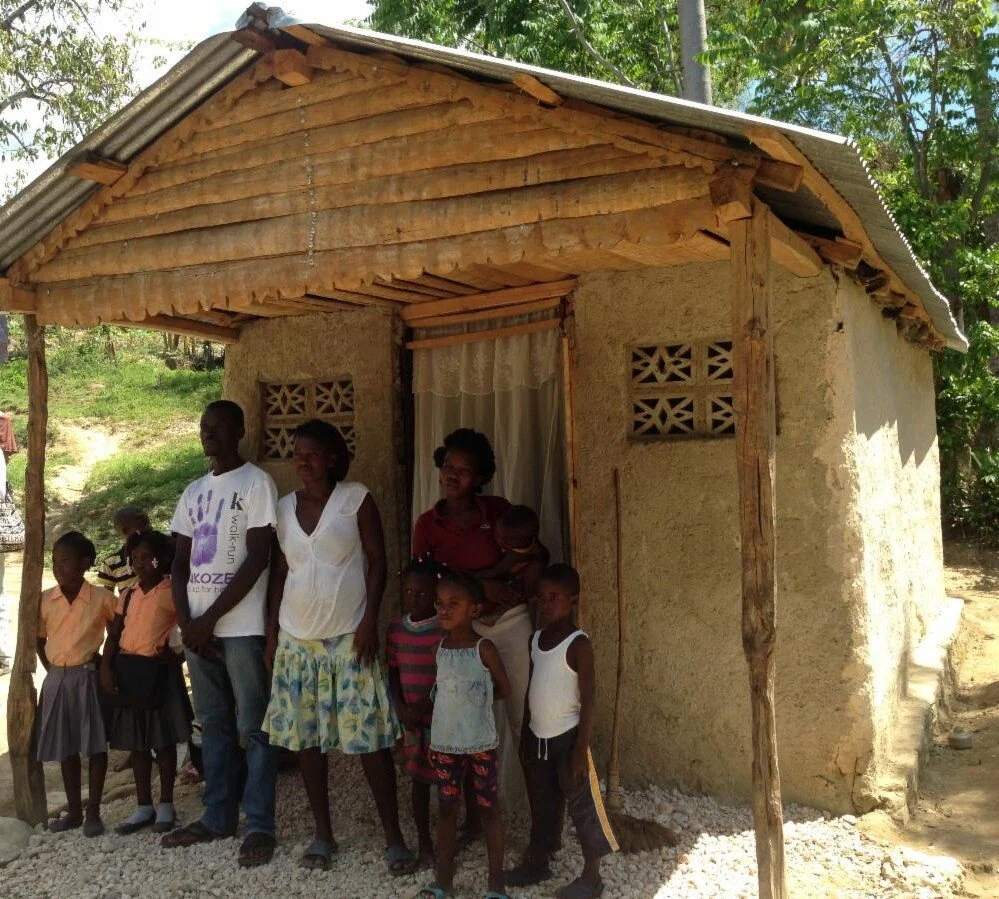We Must Persist
We Must Persist
The most marginalized people in the Western Hemisphere live in Haiti, suffering from the effects of extreme poverty. With tenacity and resiliency, The Haitian Timoun Foundation is devoted to the people of Haiti to bring about a just future with life-changing impact; yet, the COVID-19 pandemic brings significant challenges.
On Monday of this week, Bryan Stevenson gave the commencement address to the new graduates of the Emory University School of Law. Stevenson is a Harvard-educated lawyer who chose to dedicate his life to addressing the structural injustices in our country, particularly in the criminal justice system. He is the founder of the Equal Justice Initiative (Montgomery, Alabama), the author of the bestseller, Just Mercy, and is the focus of the late 2019 movie release by the same name. In his address, Stevenson lifted up four imperatives for fighting for justice, imperatives that I find to be immediately transferable in our fight for justice and life for all people in Haiti.
1) The Power of proximity.
HTF was first imagined out of a 1997 trip to Haiti in which I both fell in love with the Haitian people and culture and at the same time was powerfully impacted by the ravaging effects of poverty and injustice. I was convicted deep down in the core of my bones. This was “not right.” You can read about Haiti in a book and see occasional newspaper articles, but it is not the same as being there. Over the years, HTF has garnered strong support from people and covenant communities because of a practice of frequent immersion trips in which we enter the lives of those we serve. Unfortunately, for almost two years those trips have abated. First there was widespread unrest and then the onset of COVID-19. In this time of distancing, HTF must figure out how to still capture the power of proximity. We pray that regular exposure to these messages might enable you, the reader, to be proximate, even if you are physically not.
2) Stay hopeful.
The real enemy of justice is hopelessness. I remember a 2008 conversation in Mirebalais with Gauthier Dieudonne, the director of the CLM project at the time the initial pilot projects were ending. He spoke of the hopelessness among Haiti’s ultra-poor women. To look into their eyes is to see the absence of life. CLM and the overall work of HTF are built on hope. Hope empowers us to believe in what we cannot yet see. It compels us to stand up and speak for what is possible. Daily we are reminded that we have seen what is possible, and we continue to believe with a hope that will not quit. We invite you to continue to hope with us.
3) Change some of the narratives we have inherited.
In 2009 on an immersion trip, a first-time participant was appalled at the mountains of trash, filth clogging waterways, and the shocking sites of poverty in Port-au-Prince. It happens. His first response was to blame the Haitians. They do not care. They really are animals. It is a view shared by many, including our current U.S. president. As the week unfolded, he began to learn Haitian history - its history of inhumane slavery, the narrative of extreme complicity of the U.S. in inflicting repeated harm on Haiti, and the U.S. propping up brutal dictatorships and exploiting Haiti. Being confronted with a different narrative and with his own experience of amazingly resourceful Haitians who are part of the HTF family resulted in a conversion experience. This person became one of HTF’s most vocal advocates, strongest financial supporter, and among the first to go to Haiti to assist with relief efforts after the devastating 2010 earthquake. A narrative that we can change right now is the notion that COVID-19 has rendered us helpless. Not true! If you have been keeping abreast of HTF’s activities in Haiti you know of our tenaciousness, resiliency, and capacity to pivot to initiatives of immediate impact.
4) Willing to do uncomfortable things.
In this global pandemic it is easy to retreat in fear and self-preservation. In a nation in which “Looking after Number One” has raised individualism to perhaps our highest value, we must continue to beat the drum for justice in Haiti. If not us, then who? No justice ever happened without the will to stand up and stand with the most marginalized, even when it is not popular or comfortable. The temptation we all face is to be so overwhelmed by the sea of pain and economic suffering right now in the U.S. that we can no longer see or care about our brothers and sisters in Haiti. May it not be so!
There is much work to do. Please help us persist. Donate at www.htflive.org.
That all might have life!
Rick Barger
Founder



